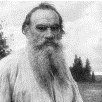Modern Languages and Literatures, Department of

Russian Language and Literature Papers
Document Type
Article
Date of this Version
1990
Abstract
Vladimir Galaktionovich Korolenko (1853-1921) turned his personal experiences as a political prisoner in Siberia into short stories that champion the talents of Siberia's ordinary people. These stories of Siberia have been noted by critics for their techniques of composition. His contemporaries like A. P. Chekhov and V. M. Garshin praise his craftsmanship and skill to compose aesthetically appealing short stories. Leighton shows how Korolenko, in order to reveal and document facts about different human beings, utilizes various literary devices such as particularized narration (skaz), allegory, contrast, parallel, and lyrical description. According to him, each story is like an "elegant, polished, graceful and harmonious composition" where the various literary devices are used "instinctively" (201). But I think that Korolenko organizes nature description, surroundings, atmosphere, and action of the narrative to complement the choice of heroes deliberately to create the harmony that Lunacharskii discusses (6-8). My essay indeed takes off from Lunacharskii's abstract observations and shows that Korolenko deftly employs narrative techniques and achieves a harmony between the narrator and character and their relationship to nature.


Comments
Published in Rocky Mountain Review of Language and Literature, Vol. 44, No. 4. (1990), pp. 201-210. Copyright 1990 Rocky Mountain Modern Languages Association.